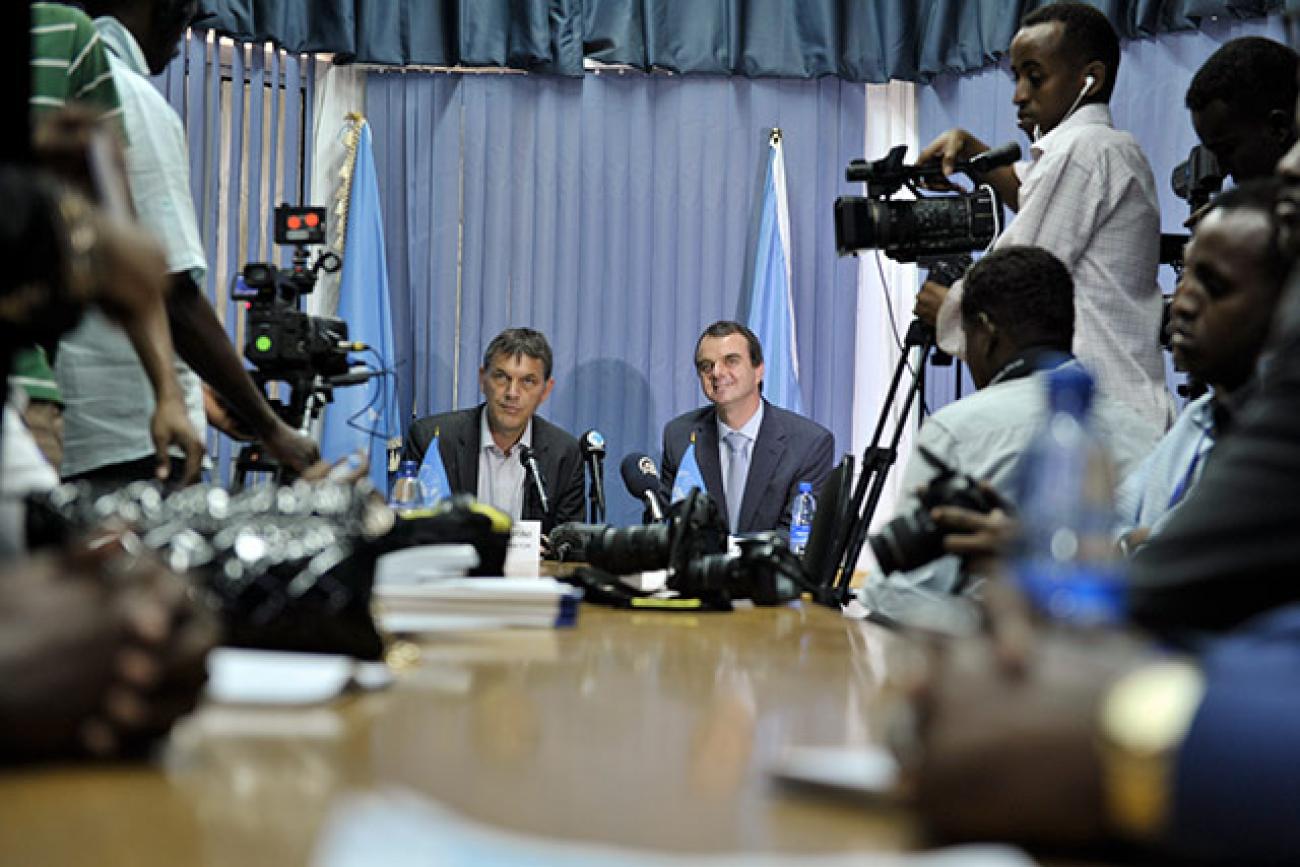FAO has called on all actors in and outside Somalia to respond to clear indications of a worsening food crisis by acting now to save lives
FAO has called on all actors in and outside Somalia to respond to clear indications of a worsening food crisis by acting now to save lives in the in the Horn of Africa nation.
This call followed the release of latest data, which indicates that poor rains, conflict, soaring food prices and limited humanitarian space and funding are reversing the gradual recovery since the end of the famine in 2012. Findings from a joint assessment by the Food Security and Nutrition Analysis Unit for Somalia (FSNAU), a project managed by FAO, and the Famine Early Warning Systems Network (FEWS NET), a project funded by the United States Agency for International Development (USAID), indicate that more than one million people will continue to face acute food insecurity.
“FAO teams and partners across Somalia have worked hard to ensure again that the world is informed of the dynamics in Somalia. Unfortunately, without adequate early action, we are all failing the Somali people,’ said Rudi Van Aaken, FAO’s acting Head of Office in Somalia.
The United Nations declared famine in 2011 in parts of southern Somalia, which killed at least 258,000 people, half of whom were children under five. Since then, FAO successfully supported over 1 million farmers, pastoralists and fishermen, and vaccinated and treated over 20 million livestock in a bid to increase resilience to shocks. However, a current slump in funding is threatening its operations across Somalia, which is complex and costly one to run, due to security and access constraints.
With existing resources, FAO has a budget of over 20 million USD already allocated to on-going emergency response activities. However, additional requirements for FAO’s priority response actions up to the middle of 2015 are close to 50 million USD, as conveyed in the Organization’s Emergency Response Plan of July 2014. “We cannot gamble with people’s lives, and just hope that the next season will be good. People are already dying. Our review of the 2011 famine showed us that half of the people had already died before famine stage was reached. That is the lesson we should have learned from 2011,” said Van Aaken.
Link to original story



